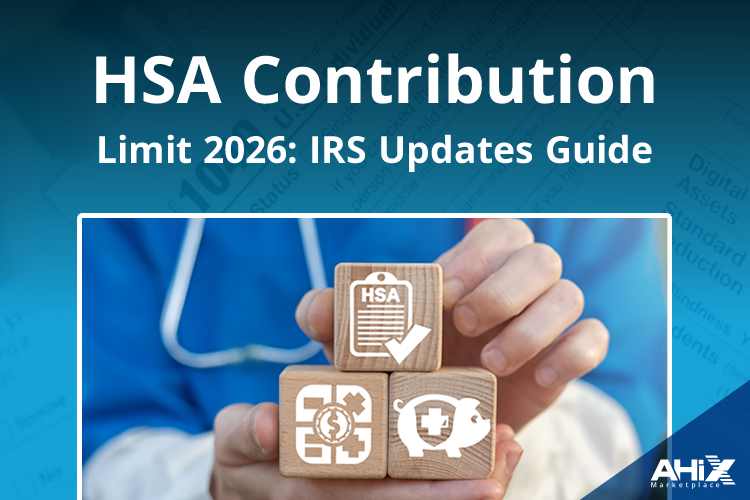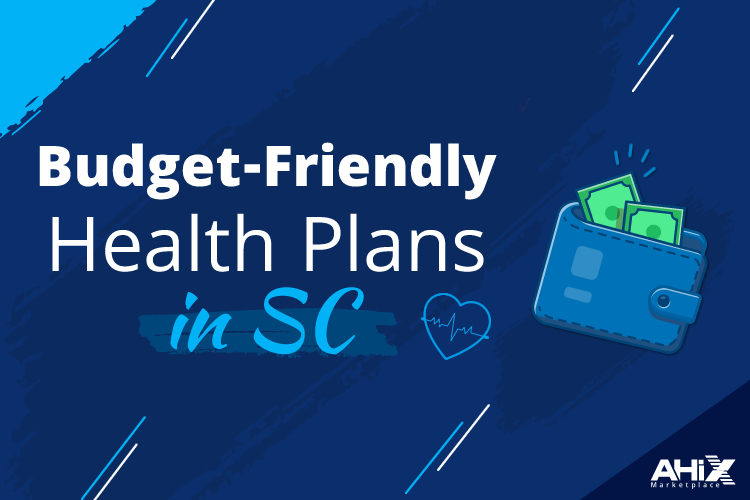“What is Obamacare?” Obamacare, also known as the Affordable Care Act (ACA), is a crucial law in the United States designed to make health insurance more accessible and affordable for more people. It introduces various rules and programs to help achieve this goal. This law significantly impacts millions of Americans by providing them with health insurance options and protections that weren’t available before, aiming to reduce healthcare costs and improve the quality of health services. In this blog, we’ll dive into the details of Obamacare, including its history, main features, how it works, and the benefits it offers. We’ll also tackle some common questions and misconceptions about it. Whether you’re trying to understand how Obamacare impacts you personally, or you’re just curious about its workings, this guide is for you.
Understanding Obamacare: A Comprehensive Guide
Obamacare is a colloquial term for the Affordable Care Act (ACA), a landmark healthcare reform law enacted in March 2010 under the administration of President Barack Obama. The primary goal of the ACA is to increase the affordability and accessibility of health insurance for Americans while improving the quality of healthcare delivery and reducing overall healthcare costs.
Key Features of the Affordable Care Act
1. Individual Mandate
One of the central pillars of Obamacare is the individual mandate, which requires most Americans to have health insurance coverage or face a penalty. This provision aims to ensure that healthier individuals participate in the insurance pool, thereby spreading the risk and lowering costs for everyone.
2. Health Insurance Marketplaces
Obamacare established state-based health insurance marketplaces, also known as exchanges, where individuals and small businesses can shop for and purchase health insurance plans. These marketplaces offer a range of coverage options, often with subsidies available to lower-income individuals and families.
3. Medicaid Expansion
Another significant component of the ACA is the expansion of Medicaid, the government program that provides health coverage to low-income individuals and families. The expansion extended eligibility to millions of previously uninsured Americans, helping to bridge the gap in coverage for those with limited financial resources.
4. Protections for Pre-existing Conditions
Obamacare prohibits insurance companies from denying coverage or charging higher premiums based on pre-existing conditions. This provision ensures that individuals with health issues cannot be discriminated against when seeking insurance coverage, providing greater security and peace of mind.
5. Essential Health Benefits
Under the ACA, health insurance plans must cover a set of essential health benefits, including preventive services, prescription drugs, maternity care, mental health services, and more. This ensures that individuals have access to comprehensive coverage that meets their healthcare needs.
6. Subsidies and Tax Credits
To make health insurance more affordable for eligible individuals and families, Obamacare offers subsidies and tax credits to help offset the cost of premiums. These financial assistance programs are designed to make coverage more accessible, particularly for those with lower incomes.
What Does Obamacare Cover?
Obamacare covers a wide range of medical services and treatments, including but not limited to:
- Preventive Care: Such as screenings, vaccinations, and annual check-ups.
- Emergency Services: Including emergency room visits and ambulance services.
- Prescription Drugs: Medications prescribed by healthcare providers.
- Maternity and Newborn Care: Prenatal care, childbirth, and postnatal care for mothers and newborns.
- Mental Health and Substance Abuse Treatment: Counseling, therapy, and rehabilitation services.
- Hospitalization: Inpatient care and surgeries.
- Rehabilitative Services: Physical therapy, occupational therapy, and speech therapy.
- Pediatric Services: Including dental and vision care for children.

How Does Obamacare Work?
Obamacare operates through a combination of regulatory measures, subsidies, and public programs to expand access to healthcare coverage. Here’s a simplified overview of how it works:
- Enrollment: Individuals can enroll in health insurance plans through the state-based marketplaces during open enrollment periods or qualify for special enrollment periods under certain circumstances.
- Subsidies and Tax Credits: Eligible individuals may receive financial assistance in the form of subsidies or tax credits to help lower the cost of premiums and out-of-pocket expenses.
- Medicaid Expansion: Low-income individuals and families may qualify for Medicaid coverage under the expanded eligibility criteria in states that have chosen to participate in the expansion.
- Consumer Protections: Obamacare includes various consumer protections, such as the prohibition of coverage denials based on pre-existing conditions and the requirement for insurers to cover essential health benefits.
- Penalties for Non-Compliance: The individual mandate imposes penalties on those who do not have health insurance coverage unless they qualify for exemptions based on specific circumstances.
The Real-World Benefits of the Affordable Care Act
Navigating healthcare can be daunting, but the Affordable Care Act (ACA), affectionately known as Obamacare, has been a beacon of hope for millions. Drawing from countless success stories, let’s explore how the ACA makes a difference:
- Protection for Your Pre-existing Conditions: Personal testimonies abound of individuals who, prior to the ACA, struggled to find insurance coverage due to chronic conditions. Obamacare changed the game, ensuring your health history is no barrier to getting insured.
- Preventive Care on the House: From real-life stories of lives saved through early detection at routine screenings to vaccines keeping communities healthy, the ACA’s emphasis on preventive care is a testament to its impact on public health.
- Choices That Fit Your Life: Through firsthand accounts, many have found solace in the ACA marketplaces. These platforms offer a variety of plans, ensuring there’s one that fits every budget and health need.
- Subsidies and Savings: Hear from families who’ve benefitted from subsidies, making health insurance affordable when it once seemed out of reach.
- Coverage Until 26: Young adults share how staying on their parents’ plan until the age of 26 provided stability during transitional life stages, from college to career.
How to Apply for Obamacare
Step into the shoes of those who’ve walked the path to coverage with these practical steps:
- Know the Dates: Real stories highlight the importance of keeping track of enrollment periods to ensure you don’t miss out.
- Prepare Your Documents: Advice from others who’ve been through the process can help you know exactly what information you need to have at your fingertips, making the application process as smooth as possible.
- Explore Your Options: To sign up for an ACA health plan, you’ll need to browse through an insurance marketplace. Here at AHiX, we recognize that navigating through the terminology can be challenging, and you might struggle to determine which plan aligns with your requirements. We offer access to a comprehensive comparison tool, simplifying the process of evaluating coinsurance, deductibles, copays, and premiums.
- Understand Subsidies: Learn from the experiences of those who’ve utilized subsidies to afford their premiums, and see how you might benefit too.
- Apply With Confidence: Tips and tricks from those who’ve successfully enrolled can demystify the process, encouraging you to take the final step towards coverage.
Obamacare Eligibility Criteria With Ease
Navigating Obamacare eligibility criteria with ease can be a complex task. Understanding the requirements and qualifications is crucial to accessing the benefits offered by this healthcare program. From income thresholds to residency status, it is important to familiarize yourself with the specific criteria to determine if you qualify for Obamacare coverage.
Eligibility might seem complex, but understanding a few key criteria can simplify the process:
- Residency Requirements: Learn from the experiences of others how your residency status influences eligibility, ensuring you meet the foundational criteria.
- Income Insights: Drawing from a broad spectrum of stories, understand how income levels affect eligibility for subsidies or Medicaid expansion, offering a clearer picture of who benefits most.
- No Alternative Coverage: Discover through real-life scenarios how having access to other forms of affordable insurance might impact your eligibility for marketplace plans.
- Special Considerations: From stories of those who’ve navigated unique circumstances, learn how factors like incarceration status affect your ability to enroll.
Impact on Healthcare Providers
The Affordable Care Act (Obamacare) has had a significant impact on healthcare providers across the United States. By increasing the number of insured Americans, hospitals and clinics have seen a decrease in uncompensated care costs. However, the shift has also meant adapting to new payment models that focus on the quality rather than the quantity of care provided. These changes aim to improve patient outcomes but require healthcare providers to invest in new technologies and care coordination efforts.
A Global Perspective on Healthcare
When considering the U.S. healthcare system under Obamacare, it’s enlightening to look at it in a global context. Unlike many developed nations that offer universal healthcare, the U.S. relies on a mixed system, with Obamacare attempting to bridge the gap for uninsured Americans.
Countries like Canada and the United Kingdom provide healthcare to all citizens, funded through taxes, which contrasts with the U.S. approach of combining government programs with private insurance. By comparing these systems, we gain insights into the challenges and benefits of different healthcare models and the unique position of Obamacare within the global healthcare landscape.
The Future of Obamacare
The future of the Affordable Care Act remains a subject of intense debate and speculation. With ongoing political discussions and potential legislative changes, the framework of Obamacare could see modifications aimed at enhancing its effectiveness or expanding its coverage.
Legal challenges also pose a threat to certain provisions of the ACA. However, the core principles of improving access to affordable healthcare and protecting consumers from insurance discrimination have widespread support among Americans. As we move forward, it will be crucial to monitor these developments, understanding that the ultimate goal is a healthier, more secure population.
FAQs about Obamacare
Who is eligible to enroll in Obamacare?
Most U.S. citizens and legal residents are eligible to enroll in Obamacare, either through the health insurance marketplaces or through Medicaid expansion, depending on their income level and other factors.
What happens if I don’t have health insurance under Obamacare?
If you can afford health insurance but choose not to enroll, you may face a penalty when filing your taxes, unless you qualify for an exemption based on specific circumstances, such as financial hardship.
How can I apply for Obamacare coverage?
You can apply for Obamacare coverage during the annual open enrollment period, which typically runs from November to December, or qualify for a special enrollment period if you experience certain life events, such as marriage, childbirth, or loss of other coverage.
Are there subsidies available to help lower the cost of Obamacare coverage?
Yes, eligible individuals and families may qualify for subsidies or tax credits to make health insurance premiums more affordable. These subsidies are based on income level and household size.
Can I keep my doctor under Obamacare?
In many cases, yes. Most Obamacare plans offer provider networks that include a wide range of doctors and hospitals. However, it’s essential to check whether your preferred healthcare providers are included in the network of the plan you choose.
Does Obamacare Cover Dental Implants?
Under Obamacare, officially known as the Affordable Care Act (ACA), dental coverage for adults isn’t mandated. However, some health insurance plans available through the Health Insurance Marketplace may offer dental coverage as an optional add-on. It’s crucial to review your plan details to ascertain if dental implants are covered. Medicaid expansion under the ACA varies by state, so coverage for dental implants may be available to Medicaid enrollees depending on state policies. To determine coverage and associated costs, it’s advisable to contact your insurance provider directly.
How Much Does Obamacare Cost Per Month?
The cost of Obamacare, or the Affordable Care Act (ACA), varies depending on several factors, including your income, family size, location, and the specific health insurance plan you choose. Many people qualify for subsidies or tax credits to help lower their monthly premiums. On average, premiums for ACA plans can range from around £100 to £500 per month, but this can vary significantly based on individual circumstances and plan options available in your area. It’s advisable to use the Health Insurance Marketplace or consult with a healthcare navigator to explore your options and determine the cost of coverage based on your specific situation.
How Long is Open Enrollment for Obamacare?
Open enrollment for Obamacare, officially known as the Affordable Care Act (ACA), typically lasts for around six weeks. The specific dates can vary from year to year but generally start in November and end in mid-December. During this period, individuals and families can enroll in or make changes to their health insurance coverage for the upcoming year. It’s essential to keep track of open enrollment dates and take action during this window to ensure you have health insurance coverage that meets your needs.
Can I get Obamacare if I’m unemployed?
Yes, if you’re unemployed, you may still qualify for Obamacare. Your eligibility for subsidies or low-cost insurance plans through the Health Insurance Marketplace depends on your household income and size. Being unemployed might also make you eligible for Medicaid, depending on your state’s Medicaid expansion status and your income level.
What’s the difference between Obamacare and Medicaid?
Obamacare refers to the Affordable Care Act (ACA), which is a comprehensive health care reform law that includes a wide range of provisions to expand health insurance coverage, reduce healthcare costs, and improve the healthcare system. Medicaid, on the other hand, is a government insurance program for individuals and families with low income and resources. One of the provisions of Obamacare was to expand Medicaid eligibility to cover more people under certain income levels.
How do I switch from my current plan to Obamacare?
To switch from your current insurance plan to an Obamacare plan, you’ll need to wait for the Open Enrollment Period (OEP) which typically runs from November 1st to December 15th each year. During OEP, you can browse plans available on the Health Insurance Marketplace, compare coverage and costs, and enroll in a new plan. If you have experienced a qualifying life event, such as losing other coverage, moving, or having a baby, you may qualify for a Special Enrollment Period (SEP) to change plans outside of the OEP.
What are the penalties for not having health insurance in 2024?
As of 2019, the federal penalty for not having health insurance was eliminated. However, some states have implemented their own health insurance mandates and penalties for residents who do not have coverage. Check the specific laws in your state to determine if there are any penalties for not having health insurance in 2024.
Does Obamacare cover dental and vision care for adults?
Obamacare plans do not typically include dental and vision care for adults as part of the essential health benefits. However, some Marketplace health plans may offer dental and vision coverage as additional, optional benefits. You can also purchase standalone dental or vision plans through the Marketplace or other providers.
Are there any recent changes to Obamacare that I should be aware of?
Obamacare is subject to legislative and regulatory changes, which can affect coverage options, subsidies, and other aspects of the law. For the most current information, visit the official Health Insurance Marketplace website at Healthcare.gov or consult a health insurance advisor. Staying informed about recent changes can help you make the best decisions for your health coverage needs.
How does Obamacare affect people with pre-existing conditions?
Under Obamacare, health insurance companies cannot refuse to cover you or charge you more just because you have a “pre-existing condition” — that is, a health problem you had before the date that new health coverage starts. This provision ensures that people with pre-existing conditions have access to affordable health insurance coverage.
What does Obamacare mean for young adults under 26?
Obamacare allows young adults to stay on their parents’ health insurance plans until they turn 26, regardless of their marital status, residency, or financial independence. This provision has significantly increased the number of insured young adults in the United States.
Find an Insurance Plan That Fits Your Needs:
Utilize our tool to compare the coverage and costs of various health plans, ensuring you have insurance coverage in the event of illness or accidents. We streamline the process of finding a suitable plan tailored to your needs.
Obamacare, officially known as the Affordable Care Act, represents a comprehensive effort to reform the American healthcare system. By expanding coverage, implementing consumer protections, and promoting affordability, the ACA has had a profound impact on healthcare in the United States. While it continues to be a subject of debate and controversy, there’s no denying that Obamacare has reshaped the landscape of healthcare and expanded access to coverage for millions of Americans.
Discovering the perfect insurance plan at a reasonable price is made easier with AHiX. While healthcare pricing is regulated, the knowledge and expertise of AHiX brokers aid individuals in securing optimal coverage for their requirements. You can purchase your insurance plan through a phone call, chat, or online platform, with certified licensed brokers available in every state. Explore all your options for individual and family health insurance.
If you’re not sure where to start, then begin by finding an insurer that offers both qualified and nonqualified plans. There, you can get quotes and customize your ideal plans on a budget you can afford.



